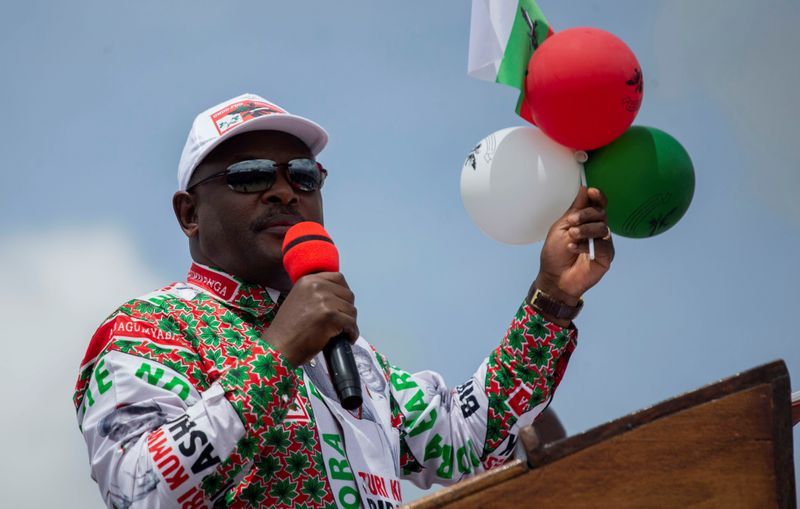
Burundi’s outgoing President Pierre Nkurunziza
BUJUMBURA, May 18 (NNN-AGENCIES) — Burundi will have its first competitive presidential election on Wednesday May 27 since the civil war erupted in 1993, but simmering political violence and fears that campaign rallies could accelerate the spread of the coronavirus have already marred the campaign.
President Pierre Nkurunziza is stepping down, although he intends to remain a prominent force in the impoverished East African nation.
He nominated Evariste Ndayishimiye, a retired army general, as his successor for the ruling CNDD-FDD party. The party held its last rally on Saturday.
Six other candidates are running, including opposition leader Agathon Rwasa, deputy chairman of the national assembly and leader of the CNL party.
Most international election observers monitoring the elections would have to undergo a 14-day quarantine.
Last year the Burundi government shut down the United Nations human rights office after repeated criticism that the youth wing of the ruling party and the security services were torturing, gang-raping and murdering political opponents. Rights groups say those attacks have increased in the run-up to Wednesday’s presidential, legislative and municipal elections.
Both Ndayishimiye and Rwasa were senior commanders in predominantly Hutu militias during the country’s decade-long civil war that killed around 300,000 people. Nkurunziza came to power in 2005 as part of a peace deal.
The country was plunged into violence again in 2015 after Nkurunziza sought a third term in office, a move his opponents said violated the constitution and terms of the 2005 deal.
Nearly half a million people fled and the economy never recovered. The violent protests eventually subsided but low-level political violence continues.
Nkurunziza will remain president until August, and a new constitution has given him sweeping powers to declare a state of emergency if the results are disputed.
This week his government expelled the country representative for the World Health Organisation despite mounting fears that Burundi’s election rallies could help spread of the new coronavirus.
The nation of 11 million has reported 27 cases so far but has only carried out about 520 tests in total. — NNN-AGENCIES






